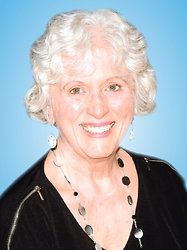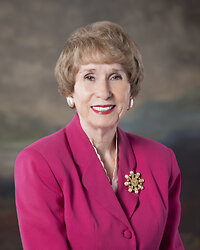We have been exploring the first stage of a marriage/relationship. The next stage is called the Power Stage when differences, difficulties, disillusionment, disappointment and anger are sometimes experienced. To some degree a couple may begin realizing that the relationship is not what they thought it was going to be. There may even be the realization that they have married a fantasy and that they projected desired characteristics upon their partner. As they move from the unrealistic stage to a more realistic stage they may think, 'this is not the person I thought I married.' If the couple decides to tackle these problems, they move into the next stage, the Working Stage.

From my experience there are three things that many couples have to work on:
1. Conflict - The problem with most of us is that we do not bring into our relationship the right tools for resolving conflict. We bring what we have been modeled, even if the tools did not work and even if we did not like them. When the conflicts are not resolved, we find ourselves moving to a safe distance and avoiding hot topics.
2. Not focusing on the relationship - As we venture into the other stages we begin focusing on other things such as children and work. Then we wake up one day and realize we do not feel connected relationally nor spiritually with our partner.
3. Losing ourselves - We feel as though we have lost our identity. In the upcoming articles I will be sharing effective ways of dealing with conflict, how to refocus on your marriage and how to grow as a couple and as an individual in your relationship. For now let us take a look at one piece of working through a conflict.
In terms of conflict, one of the chief culprits is discounting. When items are dis counted at a store, we know they have been marked down from their original value. The items have been reduced and are not worth as much numerically. Therefore, when one partner devalues us by rejecting, minimizing, shooting down, or criticizing what we are saying or feeling, this reaction causes us to feel defensive and angry - consequently escalating the argument. When this happens, we do not feel as though it is safe to have our opinion. As a result, we are not about to listen or share in response to what he/she has to say. Often the argument then is not so much about the issue of discussion, but more about our point not being valued. What we want is not necessarily for our partner to agree with us, just don't devalue what we are sharing.
When we discount by making fun of what is said, by telling our partner that she should not have those feelings, by telling him to get over it, by not responding to her sharing, and by using the word 'but,' we close off communication. Using the word 'but' discounts what goes before it. It is a way of not validating, acknowledging what a person is saying, or accepting the other person. We may find ourselves using the word 'but' in the following ways:
'I hear what you are saying, but-.'
'You did a good job, but-'
'I see your point, but-.'
'That's a good idea, but . . .'
'I see why you are upset, but -'
'I know you are angry, but-'
We do want to be conversational weavers, not discounters. A weaver is someone who blends different yarns and colors together. We become a weaver when we add our position to theirs. A weaver offers a listening audience that says it is safe to share our opinion. He/she is one who appreciates, values, accepts, and is genuinely interested in what we are saying, even if he/she has a different opinion. We are a weaver when instead of using the word 'but,' we use the word 'and' Weaving goes like this: 'This is what I hear you saying AND this is what I am thinking.' If we honor or respect another person's point of view, we have won the argument.
For upcoming Marriage Tune-up Seminars and Cruises for 2001, the cruises will be on Carnival's newest and largest ship, Victory. The dates are May 13-18th. They are open to singles and couples. The Seminars are entitled 'The Quest for Intimacy in Relationships.' To reserve a place for you and your partner, call 481-3494.
Dr. William E. Austin is a licensed psychotherapist and holds a Doctor of Divinity degree. He is a therapist with Tidewater Pastoral Counseling Services . He is well known for his warmth and sense of humor. His book, Creating Our Safe Place - Articles on Healthy Relationships, can be purchased through www.amazon.com.
Tidewater Pastoral Counseling: 623-2700
CURRENT COLUMNS
Publisher’s Point 
Time To Moveby Jean Loxley-BarnardChildren First 
Dandelion Timeby Becky AdamsRelationships 
When Your Security Blanket is in the Dryerby Dr. Bill AustinOn The Front Porch With You 
Memories of Homeby Rob Lauer
